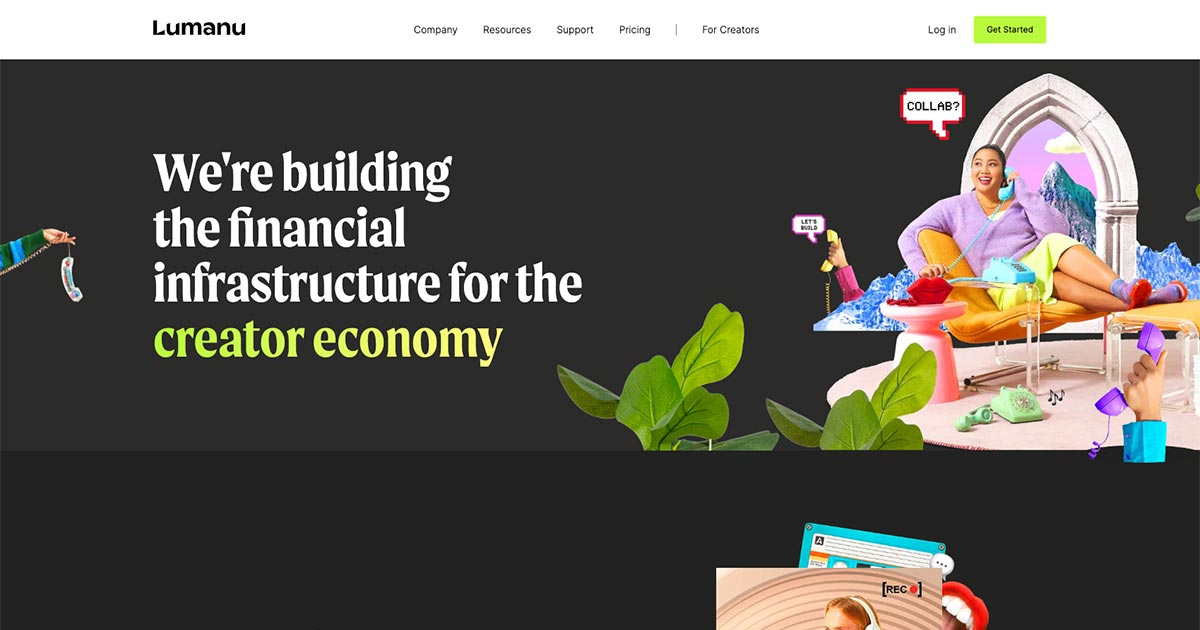Helping Contractors Get Paid, Manage Their Finances
The Origin Story of Lumanu

Last Updated: By TRUiC Team
When people think of the gig economy, what comes to mind is often a carefree contractor working from some tropical locale. Contract work does have its perks, especially flexibility. But there are headaches, too. Companies can find it hard to manage contractors, which means they sometimes don’t get paid when they should. There are other hassles as well for everyone involved. Tony Tran joins Startup Savant to talk about his startup Lumanu, which helps both large and small companies manage and pay their non-W-2 employees.
This is Lumanu’s origin story.
Assisting Non-Salaried Workers
Tony says he wanted his startup to help workers who don’t get W-2s well before he figured out exactly how to help them.
“My family immigrated from Vietnam in 1994 to South Carolina,” he says. “We [were] a very atypical group of workers. I was the only one that went to college, got a W-2 job. Both my siblings dropped out of community college and started their own business. My dad was a freelancer. And one of the things that I think we, as full-time employees, sometimes take for granted is it's really nice to have a paycheck every couple of weeks. You don't have to invoice your CFO.”
But contract work is different. Invoices are a must, or you won’t get paid. “I knew that there was a big generation — and it's only getting larger every single day — that does what I would call non-traditional work models,” he says. “They don't check in, check out, get a paycheck, have automatic social security and all those deductions. They're essentially their own boss. And I knew I wanted to build a company for them.”
He then set about deciding how he wanted to help non-traditional workers. “Eventually, I just had a eureka moment when I realized, gosh, it would really suck if I finish my work as a salaried employee and don't get my paycheck,” he says. “And reality is that's what a lot of non-W-2 employees have to deal with. Imagine finishing work for a client or selling something on YouTube but not getting the money that you've earned 30, 60, 90 days later. And that was the catalyst for everything that became Lumanu.”
A Payments and Financing Company for Creators
Tony said at its core, Lumanu is a “payments and financing company for a creator economy” that recognizes that gig workers are going to power more and more of the creative economy. He wants to meet their needs.
“The way I tell everyone is we are building the financial infrastructure for the future of creative work,” he says. “You think about the millions and tens of millions of people out there who are not W-2 employees, who are either creators, independent freelancers, or even small business owners that are doing the work that used to be done by entire full-time teams. And they have a lot of needs around getting paid on time, managing their financial health, dealing with taxes, paperwork, et cetera. And Lumanu helps [with] all of that. We also help the businesses that pay them.”
Lumanu’s product is a smartphone app that it sells directly to clients, which range from small companies to mega-corporations. “The best way to think about our software for those folks is [that] it's almost like payroll software, but it's meant for your non-W-2 employees,” he said. “So anyone that you work with anywhere in the world, whether it's an influencer, a digital creator, freelance copywriter, even a small agency that's helping you with your out-of-home advertising, any of those folks, you can essentially pay [with a] one-stop shop through Lumanu. And the nice thing is, as your partners, as your creators are getting their work done throughout the month, they can get paid instantly.”
Lumanu invoices monthly and is happy to be paid on its customers’ regular schedule even though the customers’ contractors are paid right away. “So the whole pitch to a Walmart is your talent gets paid when they get their work done, but then you can pay us back whenever your finance processes dictate,” Tony said.
Taking Advantage of the ‘Honeymoon Phase’
Tony says one thing he wishes he had known from the start is that if a customer likes your product, there’s no point in waiting to ask for referrals. Strike while the iron is hot.
“There's this old advice: When you win a customer, and they're happy with your product, you wait a while, and you ask them for referrals and introductions to anyone else,” he says. “I actually find that as soon as you make that initial connection, you're in what I would call the honeymoon phase. You're talking. Obviously, they care enough about your email or your initial outreach to take time out of their day, which is a very finite resource. No matter what happens in that call, just put your leg out there and ask them, ‘Hey, do you know anyone else?’ Make your ask very pointed … I find that even if you strike out most of the time, all it takes is one person to get you to two more meetings. And those two meetings might become four additional meetings.”
There’s also no reason to wait for someone to sign a contract or buy your product. “Just do it right in that moment in that very first call,” Tony says. “Ask them to be honest with you. If you're completely off track, if the problem that you think was so burning actually doesn't matter, what is a problem that matters, and then who else has those problems? But I think just leveraging the natural connected tissue of professional networks to get that next meeting on your first meeting, not just with that same person but with other people in your network, is really helpful.”
Tell Us Your Startup Story
Are you a startup founder and want to share your entrepreneurial journey with our readers? Click below to contact us today!





